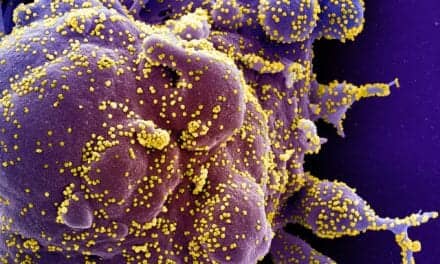Premature infants are at high risk of developing life-threatening lung infections, partly because their lungs are underdeveloped at birth. A new study from Washington University School of Medicine in St. Louis has found, in mice, that an inhaled drug promotes the development of lung immunity and reduces the risk of pneumonia.
The underdeveloped lungs and immune systems of premature babies put them at high risk of potentially deadly pneumonia. Now, a study from Washington University School of Medicine in St. Louis has found, in mice, that an inhaled drug promotes the development of lung immunity and reduces the risk of pneumonia.
The findings, published Aug. 14 in Science Advances, suggest that the drug – an inhalable form of a normal immune protein called GM-CSF – could reduce the risk of life-threatening lung infections common among premature infants. Senior author S. Celeste Morley, MD, PhD, an associate professor of pediatrics, and of pathology and immunology, discussed the study.










